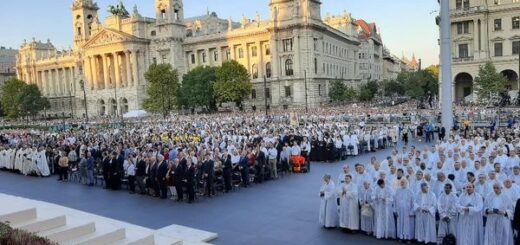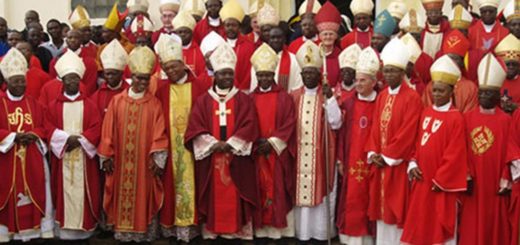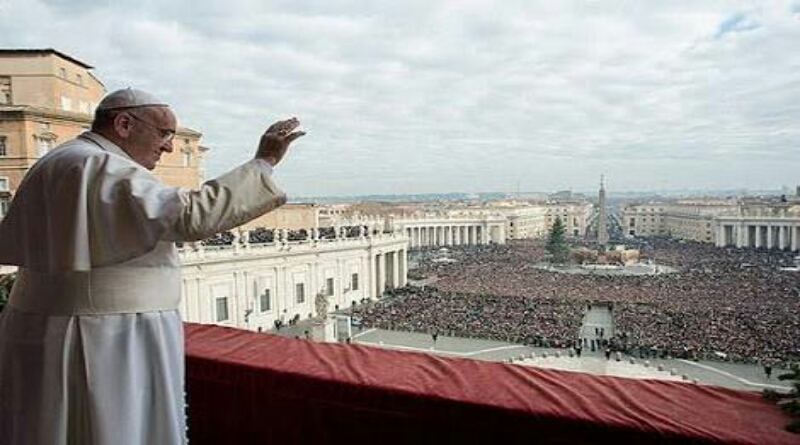MUSINGS OF A PASTOR OF SOULS OVER THE RECENT KILLINGS IN PLATEAU STATE
MUSINGS OF A PASTOR OF SOULS OVER THE RECENT KILLINGS IN DAFFO, MIANGO, DUNDU, DONG, LA’AKE AND RAFIKI OF PLATEAU STATE
The cries and anguish of individuals from the above named affected communities of recent killings on the Plateau reached me through a priest on Thursday morning 14th of March at the venue of our annual priestly retreat at the Pastoral Centre in Jos. As my phone was switched off and I also had no access to television or radio to enable me observe a serene and meaningful retreat, I was not able to follow the news of so much blood letting in the Miango chiefdom where before our retreat scores of persons were killed after the massacre in the Daffo area. According to sources, some settlements were attacked in Ngakudung, Farunhai, Mhorok, Ganda and Hotom, in Daffo District of Bokkos Local Government Area between March 7 and 8. Scores of other people were killed and over 25 corpses were said to have been recovered and buried, while over 2, 000 others became displaced.
On Thursday, March 8, five persons were reported killed in Jebbu Miango and over 50 houses were burnt and on Friday night, March 9, four children, below the age of 10 were killed in La’ake village of Kwall district, Bassa Local Government Area. On Monday, March 11, 25 persons were killed and 11 houses razed down in Dundu village of Kwall District, Bassa Local Government Area, while in the morning hours of Thursday, March 14, the news had it that five people were killed including 2 security agents in Rafiki village in Dong with properties set ablaze.
The news of these attacks was so disturbing that I had to break the silence of the retreat to call the Governor of Plateau State, Hon Barr. Simon Lalong, the Commissioner of Police Undie J. Adie and the Permanent Secretary, Security, Mr. Cornelius Shiolbial, who were all at the time working frantically to ensure the return of the situation to normalcy. I appealed to the governor to inform Mr. President, who visited Plateau State only a few days earlier to commission projects and to launch the Plateau State Peace Roadmap, to beg him (President) to concentrate on the affected Plateau axis immediately by providing from Abuja more security personnel and deploying more Airforce helicopters and military equipment that can keep surveillance twenty four hours while dialogue and negotiations go on. The Governor obviously sounded very disturbed on the phone and was determined to do all in his power to restore normalcy.
The shedding of blood in Nigeria and the language of murder seems to have become a “culture” and the preferred language understood among some farmers and herders. Attacks over farmlands and cattle seem to have become normal. One may ask what use the cattle or farm produce are when those meant to enjoy them are killed in cold blood: Innocent children not guilty of any crime have been gruesomely murdered along with their parents while asleep, adults in the bush minding cattle have been killed, those busy on their farmlands have been invaded, attacked and killed. It is said to be a herdsmen/ farmers crisis.
The question is who are these herdsmen and farmers who keep provoking one another to the point of endless blood letting? The farmers are generally identified as members of the local communities who have settled longer in places they regard as their ancestral homes. The herdsmen, on the other hand, are nomadic but some have settled for a long time and even integrated well with the local communities. But the speculation even is that some of the armed herdsmen who cause the destruction are herdsmen from elsewhere and not the local Fulani herdsmen who have had a longer relationship with their neighbours over the years. The attacking herdsmen are said to come from outside the country. The question is who invites these “foreign” herdsmen? How are they able to know the terrains and navigate through the forests and hills to reach the hinterlands and cause the destruction to lives and property with sophisticated weapons in a manner that our military, police, State Security Service, Civil Defence, Immigration Service, the Customs intelligence units cannot successfully identify or monitor their movements and activities? The intractability of these invaders shows great lapses in our security arrangements or is it just a matter of turning a blind eye?
That we have over the years been unable to identify the herders who provoke the farmers, and the farmers who provoke the herders still remains a great puzzle for such a great country as Nigeria, the “giant of Africa”. That we cannot even agree on an enlightened mode of approach to ease the farmer/ herder tension demonstrates how in Nigeria we become so parochial when it comes to sensitive national issues. Even when we openly profess objectivity or patriotism and claim our religions impel us to be our brothers and sisters keepers, we most often than not easily hypocritically wear the toga of ethnicity or religion and use them for selfish interests.
Have our authorities truly mobilized sincerely and honestly to address the farmer/herder crises or are those security and government authorities who are meant to do so prevented from doing something about these murderous and destructive encounters for some hidden interests or is it sheer incapacity?
It is not the first time that both sides involved in the herder/farmer conflict allege that some security agents take sides because some compromise their neutrality by allowing themselves to be “settled”. For some, the seeming inability to tackle the problem is due to the fact that the security agents are ill equipped and not adequately motivated to fight crime or receive equitable compensation. This is the case when security agents who have paid the supreme sacrifice protecting the lives of Nigerians and their property and all their families left behind get in return are neglect or empty promises.
One may ask if politics is involved in perpetuating this crisis? Is it a matter of partisan interests created and being sustained simply to demonize the Fedral or State government by others surreptitiously encouraging these acts of terrorism? Some also believe that there is an expansionist agenda to conquer and occupy the lands long inhabited by communities. Many also believe that with the President being a Fulani man it would be reasonable to assume that the conflict will be more easily settled; rather, it seems to escalate by the day!
Where are the elders of the farming communities who feel aggrieved? Is fighting or the attacking of herdsmen or their cattle the only solution? Where are the Fulani elders or stakeholders? Will this embarrassing situation be allowed to linger on? Is killing and the destruction of farmlands and property the panacea needed? Do we recognize our common humanity at all? Are we truly interested in one united Nigeria? When will herdsmen stop invading valuable farmlands and when will farmers stop killing herdsmen’s precious cattle? These are the triggers to the conflict. While some use sophisticated weapons, some use sticks, cutlasses, spears, bows and arrows to kill, maim and destroy. When shall any group be bold enough to say “we are guilty and we are sorry”. Each tries to justify their actions and are hell bent on demonizing the other. The consequence is that each killing and destruction only sets in motion a vicious circle of revenge.
We seem to hide our heads like ostriches pretending that the problems are not very grievous or don’t even exist. Let us make no mistake, these problems exist beyond Plateau State. From Zamfara to Benue, from Delta to Ebonyi from Edo to Ogun, Kaduna to Lagos States, etc, we daily hear of hostile confrontations between herders and farmers. This is a very dangerous blow to our notion of “one people one nation”. If we truly believe that we have no other country than Nigeria then we should learn to coexist peacefully and happily instead of the retrogressive and barbaric actions taken against one another. We should be positive by appreciating the economic and social potentials or contributions of one another before any meaningful progress can take place. With oil not yielding the desired revenue for the nation we need to rely on the farms and on animal husbandry instead of the “do me, I do you” approach. While we are still fighting over animals and crops, people in other climes have used technology to improve animal breeding and crop production to the extent that they throw away left over food. They are busy developing new ideas, new technology and conquering space while we are crippled by violence and limited by ethnicity, religion or arguments over the mode of rearing cattle or farming and even the mode of dressing! Is it not a shameful thing to Nigeria?
While we play the ostrich let us not be oblivious that a conflagration could engulf us and consume not only Nigerians but also our neighbours in countries surrounding us. What has begun like a virus or a small cancer cell is spreading rapidly with debilitating consequences.
Our political, traditional and religious leaders should not remain indifferent or be merely actors behind the scene with some remotely condoning these acts of pitiful destruction. They should know that no one will be spared when a social volcanic implosion happens. God forbid!
We must not forget what both our religions, Christianity and Islam, teach us that the Lord God Almighty will judge anyone who kills a fellow human being and He will condemn such a person to eternal misery in hell. The people of Sodom and Gomorrah lived a life of sin and suffered a catastrophic destruction because of it. Their iniquities ranged from immorality to the terrible disrespect to the sanctity of human life. However, like Nineveh, if we repent over these murderous acts and barbaric attacks, wash clean ourselves and our land – desecrated and polluted by the blood of innocent people, God being a God of mercy, will forgive us, rebuild us, reconcile us, reorientate our mentality and we shall become more neighbourly, brotherly, sisterly and even more patriotic, working in unison for the common.
Most Rev. Ignatius A. Kaigama,
Catholic Archbishop of Jos




